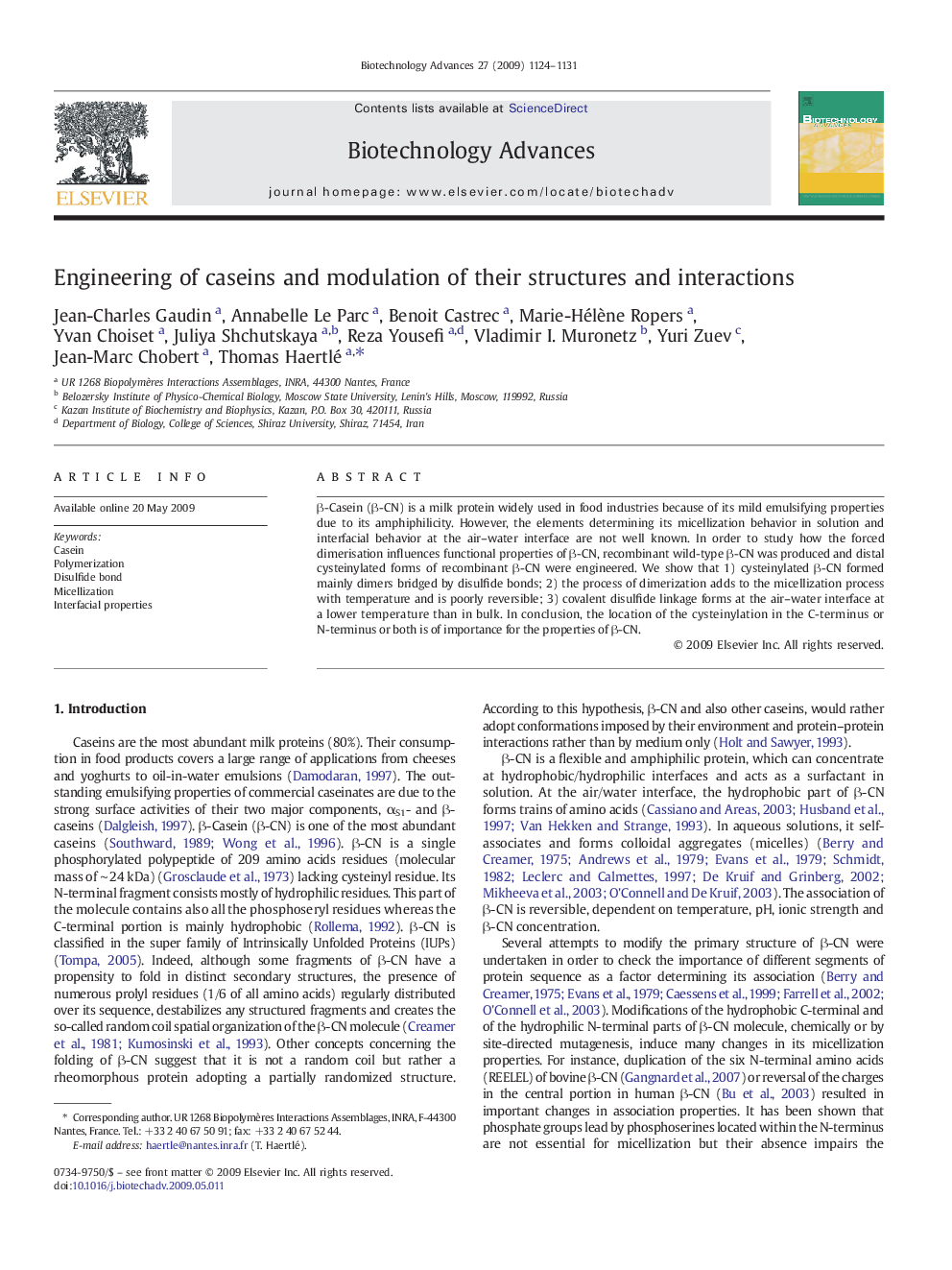| Article ID | Journal | Published Year | Pages | File Type |
|---|---|---|---|---|
| 14682 | Biotechnology Advances | 2009 | 8 Pages |
β-Casein (β-CN) is a milk protein widely used in food industries because of its mild emulsifying properties due to its amphiphilicity. However, the elements determining its micellization behavior in solution and interfacial behavior at the air–water interface are not well known. In order to study how the forced dimerisation influences functional properties of β-CN, recombinant wild-type β-CN was produced and distal cysteinylated forms of recombinant β-CN were engineered. We show that 1) cysteinylated β-CN formed mainly dimers bridged by disulfide bonds; 2) the process of dimerization adds to the micellization process with temperature and is poorly reversible; 3) covalent disulfide linkage forms at the air–water interface at a lower temperature than in bulk. In conclusion, the location of the cysteinylation in the C-terminus or N-terminus or both is of importance for the properties of β-CN.
